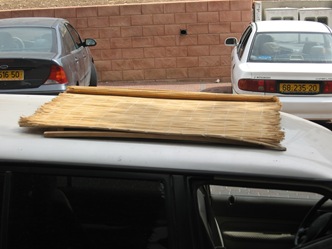Although I’ve alluded to the war, I haven’t actually blogged about it outright.
Why?
The main reason is that I have nothing to add. Other bloggers are saying it better than I ever could.
But also, B”H, life goes on. I think this is very difficult to explain to someone who isn’t here.
On one hand, we are at war. This is a tiny, interconnected country, and no matter where one goes or lives, the war isn’t very far away – neither geographically nor emotionally. I’d rather not go into details which would jeopardize my semi-anonymous status, but I will say that TRLEOOB (like much of Israel) is relatively close to at least some of the places which have been mentioned in the news over the past few days.
Meanwhile, we know some people - including one of ESG’s teachers – who have received Tzavei Shmoneh (emergency call-ups), and many of our neighbors are once again opening their homes to strangers (as they first did during the Expulsion from Gush Katif and then again during the Second Lebanon War).
Yet, on the other hand, we continue with much of our mundane daily routines. For example, ASG started driving lessons this week; AMG is writing an English book report on “From the Mixed-Up Files of Mrs. Basil E. Frankweiler”; MAG had an orthodontist appointment today; and so on.
How do I write about this dichotomy? I don’t want to sound callous and indifferent. But at the same time, I don’t want to suggest that we are chas v’shalom enduring anything resembling that which the beleaguered residents of an ever-growing swath of the country are suffering.
Your thoughts?
יה”ר שיצליח ה’ את תפילתנו ויחזק את ידי מגיני ארץ קדשינו
























